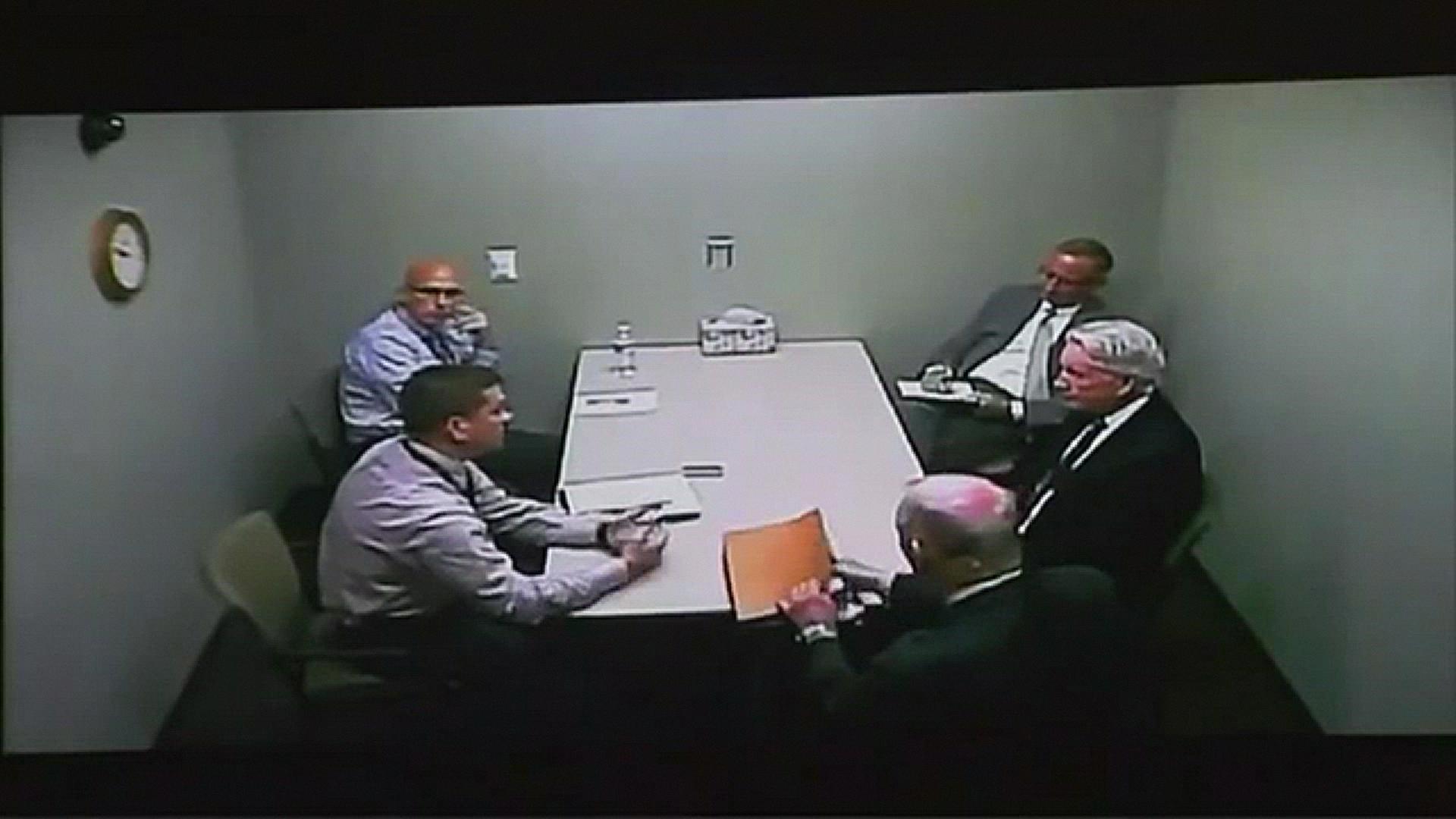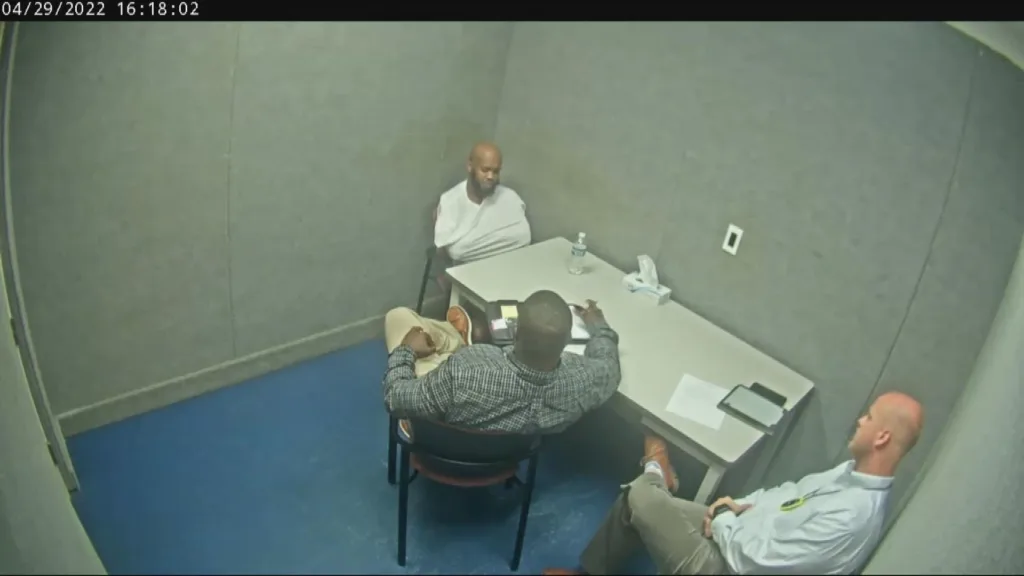Police interrogation footage is an important piece of evidence in a criminal case. It can provide insight into the tactics used by law enforcement during an interrogation and can help determine the validity of a confession or admission made by a suspect. Obtaining police interrogation footage can be a complex process, but it is important to understand your rights and options.
If you have been charged with a crime and have an attorney, your attorney will likely request the footage as part of the discovery process. This is a legal right that ensures the defense has access to all evidence in the case. If you do not have an attorney, you can request the footage yourself by sending a letter to the prosecutor or state’s attorney handling your case. In the letter, you should state that you are requesting the footage and provide your name, case number, and the date and location of the interrogation.
It is important to note that not all interrogations are recorded. While federal law enforcement agencies are required to record all custodial interrogations, state and local agencies may not have the same requirement. If the interrogation was not recorded, your attorney may challenge the validity of any confession or admission made during the interrogation.
During an interrogation, police are allowed to use certain tactics to elicit inforation from a suspect. However, they are not allowed to use physical force or threats to obtain a confession. Additionally, police are allowed to lie to a suspect during an interrogation. This can include making false statements about evidence or the severity of the charges in order to elicit a confession. The use of these tactics can be scrutinized in court, and the existence of police interrogation footage can help determine if any improper tactics were used.
In addition to providing insight into the tactics used by law enforcement, police interrogation footage can also be used to challenge the accuracy of a confession or admission. In some cases, a suspect may make a false confession due to coercion or mental impairment. The existence of footage can help determine if a confession was made willingly and accurately.
Obtaining police interrogation footage can be a valuable tool in a criminal case. If you have been charged with a crime, it is important to understand your right to access evidence and to work with an attorney who can help you obtain and review the footage. While not all interrogations are recorded, the existence of footage can provide important insights into the tactics used by law enforcement and the accuracy of any confession or admission made by a suspect.
Obtaining Police Interrogation Videos
Police interrogation videos can be obtained through a process called discovery. Discovery is a legal process where both the prosecution and defense exchange evidence and infrmation that is relevant to the case. This includes police interrogation videos.
If you have been charged with a crime and have hired a lawyer, your lawyer will request the police interrogation video as part of the discovery process. Your lawyer will then review the video and use it to build your defense.
If you are not represented by a lawyer, you can still request the police interrogation video. You can do this by sending a letter to the prosecutor or state’s attorney handling your case. In the letter, you should request a copy of the police interrogation video and explain why you need it. It’s important to note that you may be charged a fee for copying the video.
It’s important to remember that not all police interrogations are recorded. If your interrogation was not recorded, you may not be able to obtain a video of the interrogation. However, your lawyer can still request any notes or transcripts from the interrogation.
Obtaining a police interrogation video involves the discovery process. If you have a lawyer, they will request it on your behalf. If you do not have a lawyer, you can request it yourself by sending a letter to the prosecutor or state’s attorney. It’s important to remember that not all interrogations are recorded, but your lawyer can still request any notes or transcripts from the interrogation.

Source: 11alive.com
The Reasons Behind Police Releasing Interrogation Videos
Police release interrogation videos for several reasons. First and foremost, it is an essential tool for evidence preservation and transparency. The release of these videos to the public allows for an accurate portrayal of the interrogation process and ensures that the rights of the accused are being protected. Additionally, it can help build trust betwen law enforcement and the community by demonstrating a commitment to accountability and fairness.
Moreover, releasing interrogation videos can also be beneficial for law enforcement. It provides a record of the interrogation that can be used in court to support a conviction. It also serves as a training tool for officers to improve their interrogation techniques and learn from their mistakes.
Furthermore, the release of interrogation videos can help to prevent false accusations against officers or accusations of coercion during the interrogation process. By releasing the video, the public can see for themselves whether or not the interrogation was conducted appropriately and fairly.
In sum, the release of interrogation videos is an important step towards transparency and accountability in law enforcement. It not only benefits the accused and the community but also helps to improve the techniques and practices of law enforcement.
Recording Interrogations
Interrogations of individuals suspected of any federal crime are required to be recorded by federal law enforcement agencies, including the FBI, DEA, and ATF. This means that any custodial interrogation that takes place must be captured on audio or video recording equipment.
The purpose of recording interrogations is to ensure that tere is an accurate record of what was said during the interrogation. This record can be used in court to help establish the guilt or innocence of the suspect. The recording can also be used to protect the rights of the suspect by providing evidence of any coercion or mistreatment that may have occurred during the interrogation.
It is worth noting that not all interrogations are custodial interrogations, and not all custodial interrogations are subject to the recording requirement. For example, if an individual is not under arrest and is voluntarily answering questions, the interrogation may not be subject to the recording requirement.
However, if an individual is in custody and is being interrogated, the recording requirement applies. This means that law enforcement officials must ensure that the recording equipment is functioning properly and that the recording is of sufficient quality to be admissible in court.
In addition to the recording requirement, federal law enforcement agencies are also required to inform suspects of their Miranda rights before any custodial interrogation takes place. This includes the right to remain silent and the right to an attorney.
The recording of interrogations is an important tool in ensuring that the rights of suspects are protected and that the criminal justice system operates fairly and justly.
Can Police Lie During Interrogations About Evidence?
It is a commonly held belief that the police are expected to be truthful during interrogations. However, it may come as a surprise to many that the police are legally allowed to lie about certain aspects of the case, including the evidence they have against the suspect.
Police officers may use a variety of tactics to extract a confession from a suspect, including lying about the evidence they have. They may claim to have DNA evidence, eyewitness testimony, or even a confession from anoter suspect. These tactics are commonly used to intimidate the suspect and make them feel that confessing is their only option.
It is important to note that while the police may lie about evidence, they are not allowed to fabricate evidence or coerce a confession. These actions would be considered illegal and would not be admissible in court.
In some cases, the police may even use a fake polygraph test to trick the suspect into confessing. The polygraph test, also known as a lie detector test, is not admissible in court, but the mere mention of it may be enough to scare the suspect into confessing.
It is crucial for individuals who are being interrogated by the police to be aware of these tactics and to exercise their right to remain silent until they have spoken with an attorney. An attorney can advise the suspect on their legal rights and help ensure that they are not coerced into making a false confession.
While it may seem unfair that the police are allowed to lie about evidence during an interrogation, it is a legal tactic that is commonly used. It is important for individuals to be aware of these tactics and to seek legal advice before making any statements to the police.

Conclusion
Police interrogation footage is an important piece of evidence in criminal cases. As a suspect or defendant, you have the right to access this footage through the discovery process or by requesting it directly from the prosecutor or state’s attorney. It is crucial to have access to this footage if you wish to challenge the validity of the interrogation or if you beliee that you were coerced into making false statements. Additionally, it is important to be aware that police officers are allowed to lie during interrogations, which can make the footage even more crucial in determining the truth. Ultimately, the availability of police interrogation footage can play a significant role in the outcome of a criminal case and can help ensure that justice is served.
